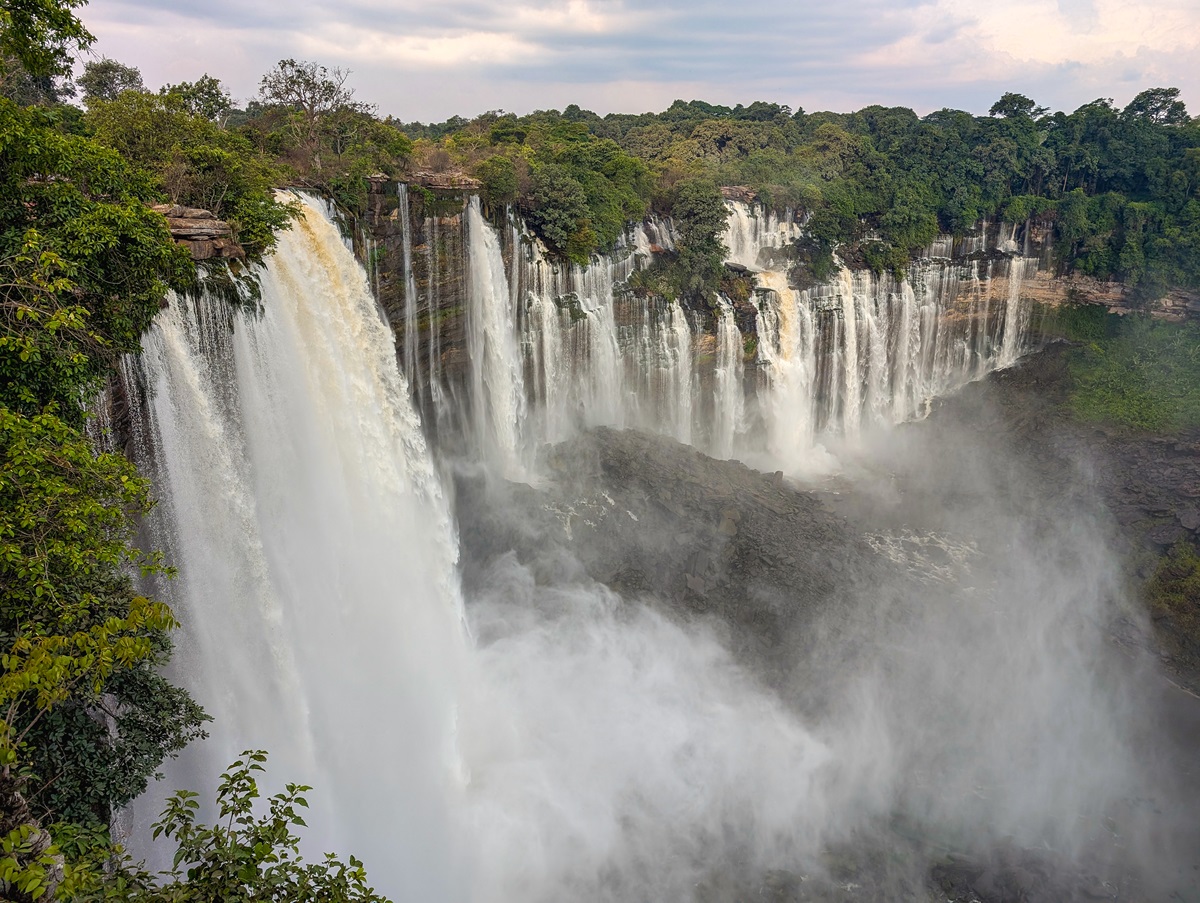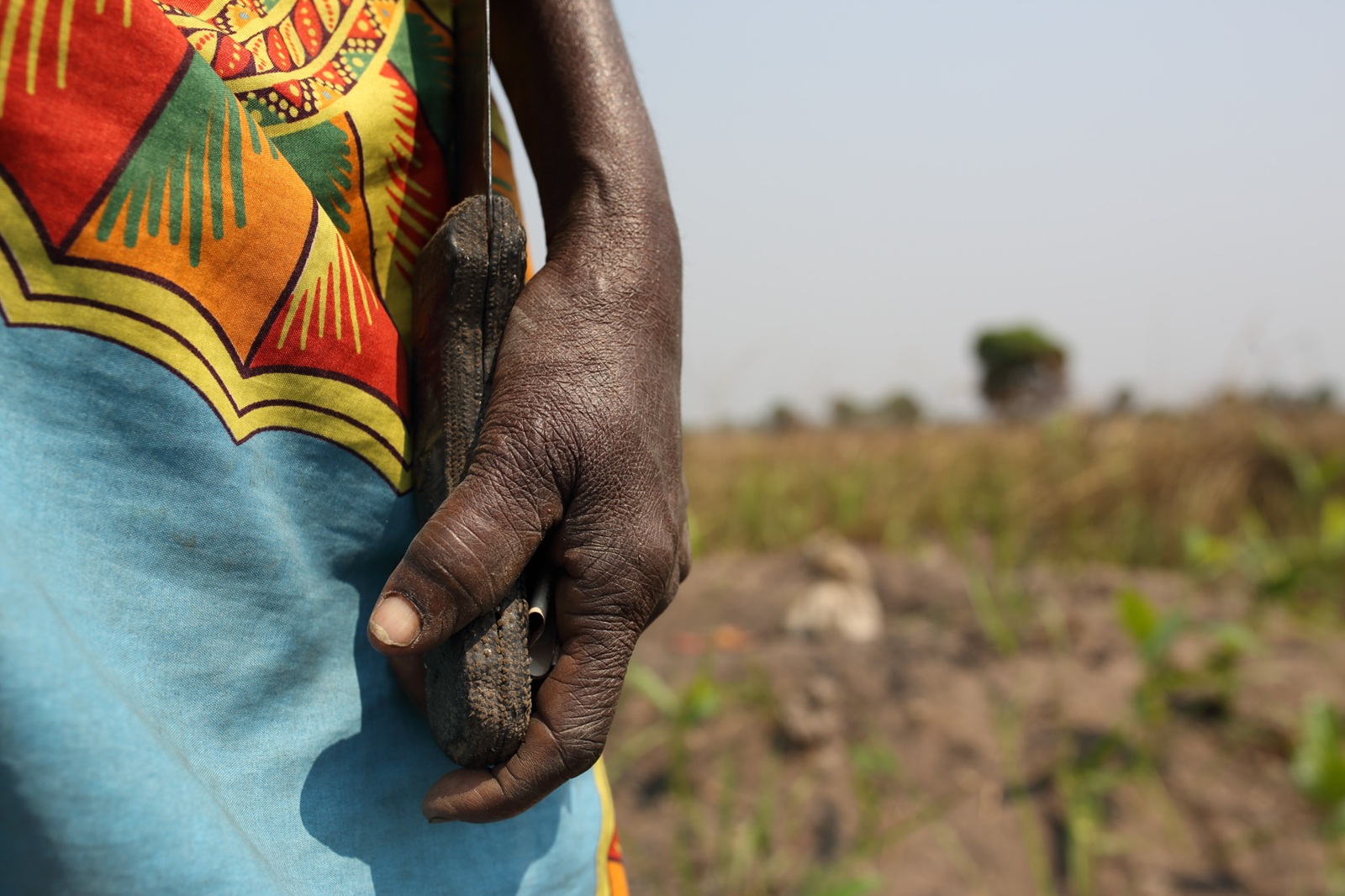KAYA Newsletter #2. January 2025

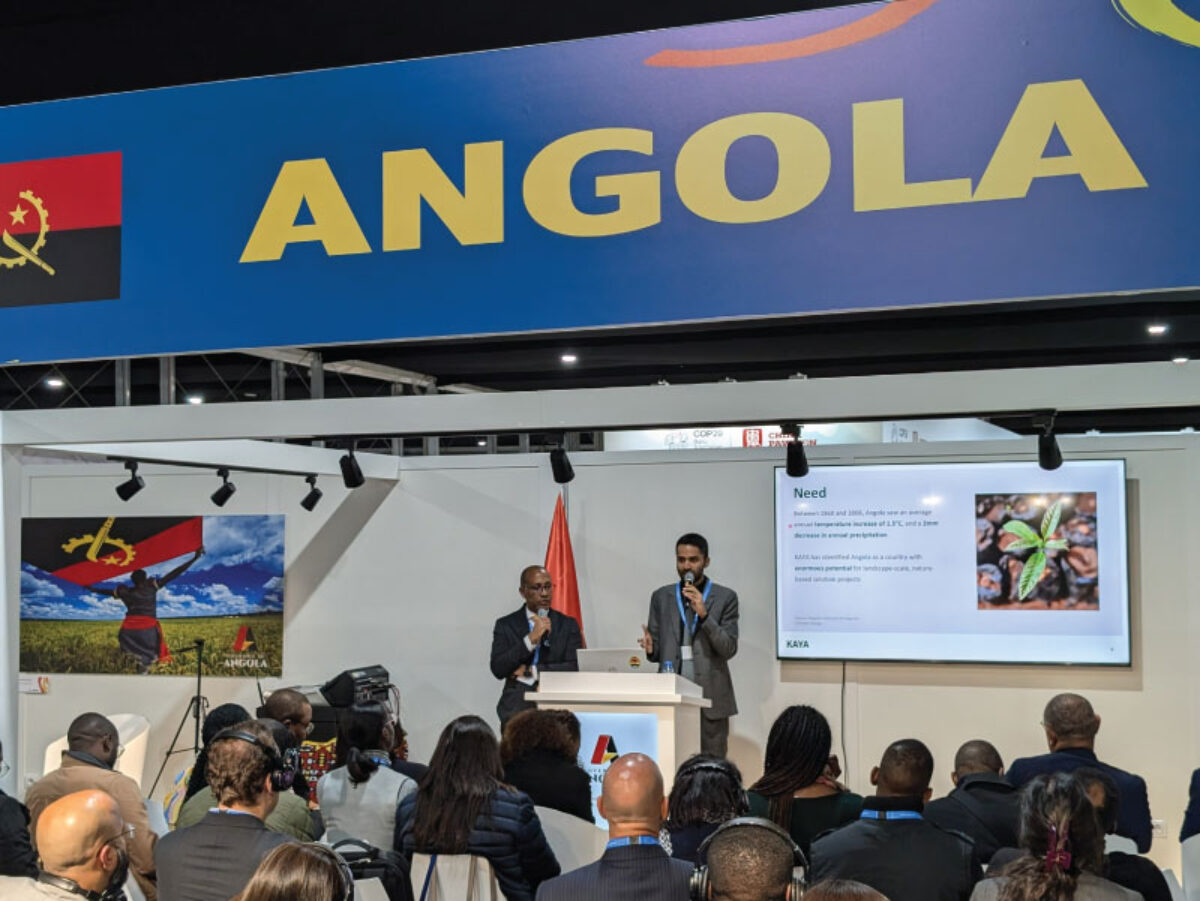
KAYA Newsletter #2. January 2025
Introduction
As 2025 begins, we can reflect on the challenges we’ve overcome, and the strong progress we’ve made towards launching our restoration projects.
A large part of that progress is thanks to important stakeholder engagement that ensures we have developed strong relationships with the appropriate people and organisations, from government, to NGOs, to local villagers and farmers.
Understanding the baseline conditions, and where the need is greatest, is essential to getting any reforestation, agroforestry or fire management project off the ground.
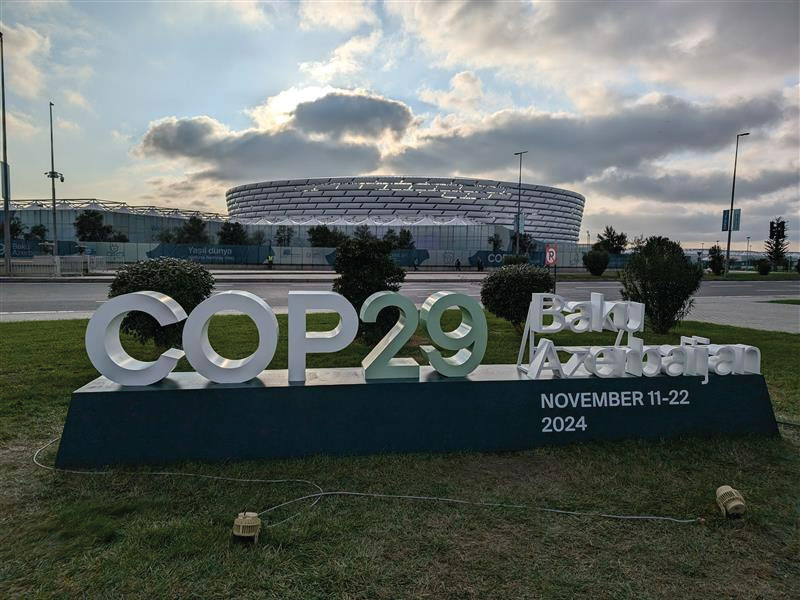
Meanwhile, we’ve been busy attending the annual global climate change summit, COP29 in Baku, Azerbaijan. We hosted two events at the Angolan Pavilion and were honoured to accompany the Angolan government and help them deliver on their climate goals.
There’s been plenty of activity on the ground in Malanje, Angola, where we are undertaking project feasibility studies and have recently opened our new regional office. Let’s dive in!
Latest News
COP29
At COP29 in Baku, Azerbaijan, KAYA CEO Chaitanya Sure took to the stage at the Angolan Pavilion to speak passionately about his belief in the potential impacts on local communities, climate and biodiversity in Angola through landscape-level restoration and fire management interventions.
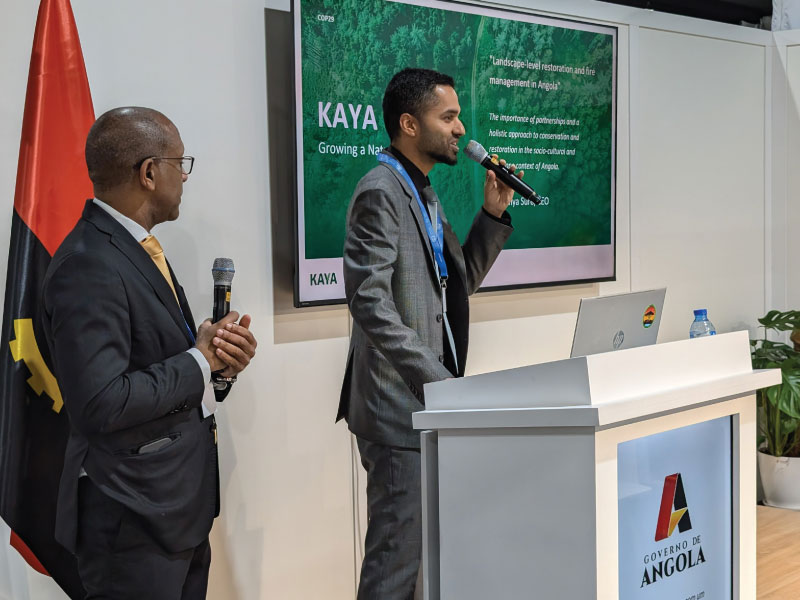
He explained how the Angolan government’s commitment to its climate goals outlined in their National Strategy for Climate Change aligns with KAYA’s objectives.
Angola’s stated aim include working towards climate change mitigation through forest management and other land uses, in addition to adaptation through forest, ecosystem and biodiversity protection.
Angola also threw its support behind the operationalisation of Article 6 of the Paris Agreement and new carbon markets, which reached a breakthrough after four years of stalled negotiations.
Find out more about our experience at COP29 in our video on LinkedIn.
We also discuss the implications of the gavelling of Article 6 in our latest blog piece on our website.
KAYA Lab
In December at the KAYA Lab, we planted the first 300 fruit trees following the principles of syntropic agriculture. We will also establish an organic vegetable farm in the coming months.
Additionally, we were delighted to host a visit from the Governor of Malanje, the Provincial Director of Agriculture, and the Crown Energy Group to demonstrate the progress we are making, and the Lab’s potential for helping local people and ecosystems.
Face the Future
Our climate experts have been accompanied by Face the Future on a field trip to visit rural communities in Malanje Province, northern Angola. Face the Future have almost 30 years of experience in climate forestry projects, and they have assisted us with feasibility studies for our reforestation and agroforestry projects.

We gained valuable insight into socio-economic, cultural and landscape conditions vital to successfully implementing our projects.
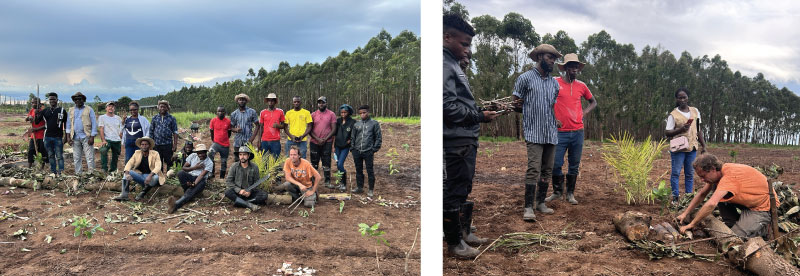
ECOTOP
We are being supported on an agroforestry assessment mission in Malanje by ECOTOP. More than 20 years ago, ECOTOP pioneered the concept of Dynamic Agroforestry, which involves understanding and taking advantage of the principles underlying natural succession in an ecosystem. The flow and dynamics of water, nutrients and energy is vital to maintaining each species, and each species therein performs an important function.

Harnessing this balance is vital to any agroforestry project and we intend to leave no stone unturned as we look towards carefully implementing the most suitable and sustainable practices for the region.
Industry News
Article 6
The COP29 agreement on Article 6 of the Paris Agreement is a significant development for nature-based solutions project developers, as it establishes rules for international carbon markets. Key provisions include the integration of carbon removals, such as reforestation and wetland restoration, into the Paris Agreement Crediting Mechanism (PACM). This offers developers new funding opportunities through structured global carbon markets.
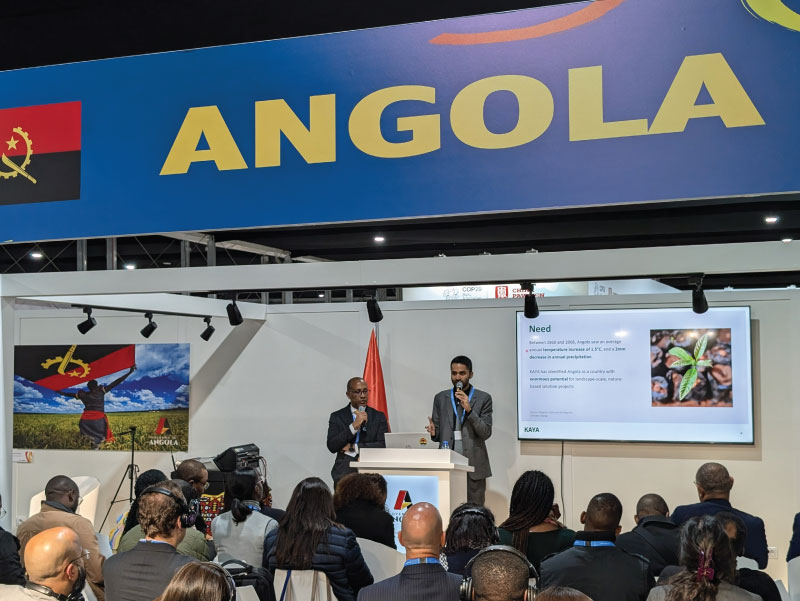
The framework aims to enhance transparency and ensure environmental integrity, potentially attracting private investment, particularly in developing nations. However, challenges include finalising robust methodologies to govern nature-based solutions projects and addressing concerns about additionality, permanence, and safeguards.
The operationalisation of Article 6 could also impact the voluntary carbon market by setting higher quality standards and increasing demand for credible nature-based solutions credits. While this provides growth opportunities, developers must adapt to stringent requirements to align with these new standards.
At KAYA we welcome the drive towards integrity and transparency, and we’re committed to ensuring our projects are held to the highest standards possible.
Hiring
Visit us on LinkedIn for regular updates on KAYA, including job postings:
We are currently seeking the following:
- AFOLU Project Development Specialist
- Angola Head of Operations
Latest Posts






